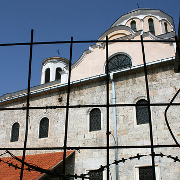 |
| (Photo by Quinn Dombrowski) |
International (ODM/MNN) ―The
Open Doors 2012 World Watch List has a familiar look to it.
North Korea tops the list for the 10th straight year as the country where Christians face the most severe persecution, while Islamic-majority countries represent 9 of the top 10, and 38 of the 50 countries on the annual ranking.
Open Doors USA President/CEO Dr. Carl Moeller said this year's report also reveals an interesting, but not surprising, reality. "Islamic extremism is on the rise. Nine out of the top ten countries on our list of the worst persecutors of Christians around the world are Islamic. 38 out of the top 50 that we've ranked are Islamic extremist situations."
Afghanistan (2), Saudi Arabia (3), Somalia (4), Iran (5) and the Maldives (6) form a bloc where indigenous Christians have almost no freedom to openly worship. For the first time, Pakistan (10) entered the top 10, after a tumultuous year during which the nation's highest-ranking Christian politician, Cabinet Minister Shahbaz Bhatti, was assassinated for his attempts to change the blasphemy law.
Moeller says, "I was told by an Egyptian brother who was with me just last week: 'The situation for Christians in Egypt and all of North Africa is not an 'Arab Spring' at all, but a 'cold winter' of threat and increased persecution.'" He adds, "The pressure on the church is causing, literally, hundreds of thousands of Christians every year to flee these countries. That will devastate the Christian populations in the Middle East."
In 2011, remnant churches are becoming the norm in many countries where Islamic hardliners are in power. "There is a Muslim-background believer (MBB) church that is growing remarkably during these very chaotic times. We can attribute that to the work of the Holy Spirit. We can attribute that to the spiritual emptiness that is still present amidst the political and social upheaval."
There are significant moves on the World Watch List, including Sudan moving up 19 spots to No. 16 - the biggest leap of any country from 2011. Nigeria jumped 10 spots to No. 13. Egypt, wracked by violent protests and upheaval during the Arab Spring, rose four positions to No. 15. Increased Islamic extremism triggered the upward movement of Sudan, Nigeria and Egypt.
However, it's not only the Middle East and North Africa that are topping the list. The rest of the top 10 is composed of Uzbekistan (7), Yemen (8), and Iraq (9). Laos was the lone country to drop from the top 10 list, falling to No. 12 from No. 10.
"Persecution globally is increasing dramatically," says Moeller. "It's coming from a number of new sources. One of the megatrends that we noticed is that more and more countries, particularly in the Islamic world, are becoming unstable and close to becoming Failed States--or are indeed Failed States."
For example, Somalia, Afghanistan and Pakistan could be considered Failed States. "That's producing untold hardship on the Christian communities in these places, because in a Failed State, there are no vehicles for Christians to address their concerns politically. They can only address them spiritually through prayer and through the encouragement of God's Word."
While persecution has worsened due to persecution by Muslim extremists, without question North Korea once again deserves its No. 1 ranking. Defiantly Communist, North Korea built a bizarre quasi-religion around the founder of the country, Kim Il-Sung. Anyone with "another god" is automatically persecuted. The estimated 200,000 to 400,000 Christians in this country must remain deeply underground. An estimated 50,000 to 70,000 Christians are held in ghastly prison camps.
"How the death of Kim Jong-Il last month and the coming to power of his son, Kim Jong-Un, will affect the status of Christians in North Korea is hard to determine at this early stage," Moeller said. "Certainly the situation for believers remains perilous. Please pray with me that the Lord will open up North Korea and there will be religious freedom to worship the One, true God, not the gods of Kim Jong-Il and Kim Il-Sung."
In July 2011 southern Sudan, which is mostly Christian, seceded to become an independent country, called South Sudan, leaving the Christians of North Sudan much more isolated under President Omar al-Bashir. In response to the loss of the south, al-Bashir vowed to make constitutional changes to make his country even more Islamic. On the ground the military has attacked Christian communities in battles over resources with many being killed.
Nigeria remains the country with the worst atrocities in terms of lives lost. More than 300 Christians were martyred last year in Nigeria, though the actual number is believed to be double or triple that number. The total is probably greater in North Korea, but impossible to confirm due to its isolation. Since 2009 the extreme Islamic group Boko Haram has destroyed more than 50 churches and killed 10 pastors in Nigeria.
Egyptian Christians experienced a disastrous start to 2011 when a bombing at the Coptic Orthodox Church of Saint Mark and Pope Peter in Alexandria killed 21 Christians on New Year's Day. After the ouster of President Hosni Mubarak in February, hopes soared for new freedoms for all Egyptians. But on Oct. 9, the military turned on its own citizens in the Maspero massacre in Cairo, killing 27 Coptic Christian demonstrators. At the close of 2011, Islamist parties flourished in the November elections, prompting some to speak of an Arab Winter instead of an Arab Spring for Christians.
China still has the world's largest persecuted church of 80 million, but it dropped out of the top 20 this year to No. 21. Last year China ranked No. 16. This is due in large part to the house church pastors learning how to play "cat and mouse" with the government.
The good news behind the bad news of rising persecution is an increase in church growth. "Muslims are turning to faith in Christ, so we see both things happening: the visible church being incredibly pressured and many Christians fleeing the region, and also the growth of Muslim-Background Believer churches and cell groups despite the persecution."
Through the upheaval, Moeller says, "Open Doors is committed to being on the ground, shoulder-to-shoulder with our brothers and sisters throughout North Africa, providing Bibles, providing spiritual encouragement, training."
The WWL is based on a questionnaire devised by Open Doors to measure the degree of persecution in over 60 countries. The questionnaires are filled out by Open Doors field personnel working in the countries and cross-checked with independent experts to arrive at a quantitative score per country. Countries are then ranked according to points received.

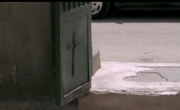

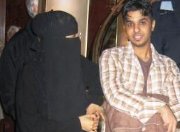
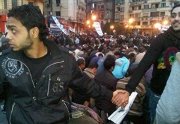
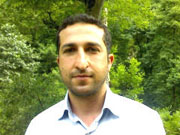

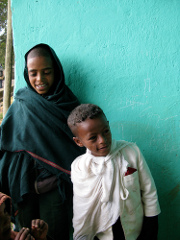



.svg.png)



